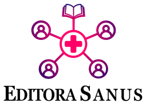Post-COVID-19 Syndrome: What we know up to now?
Abstract
Coronavirus disease-2019 (COVID-19), a contagious disease caused by Severe Acute Respiratory Syndrome - Coronavirus-2 (SARS-CoV-2), has reached pandemic status. As it spreads across the world, it has overwhelmed health care systems, strangled the global economy, and led to a devastating loss of life. Some with prolongated hospitalizations with much cost, suffering and sequels.
In Brazil, it is estimated about there are 1.5 million with Post-COVID-19 Syndromes. This condition is very new, with great cost to the public sector and with great individual disability.
The definition of clinical scenarios is not yet defined, as well as the distribution between viral activity from the acute and semi-acute phase to a sequela phase where the viral processes with their immediate inflammatory response have been completed. As a result we have as sequels themselves as fibrosis of organs and systems, endothelial dysfunctions and chronic inflammatory states of low intensity and its existing repercussions.
The sequel phase has been prepared, with currently encompasses from 8 weeks for 7 months until now.
The Post-COVID-19 sequela described encompass autoimmune disease across their huge spectrum, micro and macro thrombosis in many different territories, several types of pneumonia included organizational, cold-like Perniosis, encephalitis, direct and indirect toxic action on cardiomyocytes and coronary. This last condition at the heart have been described among 50 to 80% in different studies.
Cholangitis, especially from new mutations, depression, anxiety, and increased suicide risk. Thus, we can perceive impairment in: Cardiopulmonary. neuropsychiatric, hematological, and renal in several organs and body systems.
This scenario with a lack of definition goes from the acute phase to the chronic phase, as described above. Involving multiple systems and several body organs leading to disability sequelae, it points to a strong investment in research in this area and a concentrated focus in trans-disciplinarity and multiprofessionals involved.
Future research needs to be translational, that is, basic science going through the clinic and arriving at retrospective and prospective epidemiologic design, to reach the clinical trials with a high degree of evidence and recommendations.
For example, a recent study from Germany shows a functional autoantibody against G proteins-coupled receptors in patients with persistent COVID-19 symptoms. This finding appears to be intense and comprehensive.
These directions of knowledge should include identification of serological markers with validation and distinction of the different phases, especially in the chronic, clinical characteristics, imaging patterns and other complementary tests used in clinical practice to better understand the natural history and its basic pathophysiological and etiopathogenic aspects. The creation of research and work groups to account for new knowledge is indispensable to take care of this disability people in mental and physical aspects.
Care and knowledge production does not end with the patient’s discharge from hospital. It will occur mainly in the follow-up in health units, with the creation of databases. This will be a necessity.
Comprehensive care will be the way to reduce the suffering and limitations for persons to return to its normal life as much as possible.
The priorization of more fragile person with prolonged acute time of COVID-19 should be a focus on follow-up.
Rising to this challenge will require harnessing of existing outpatient infrastructure, the development of scalable healthcare models and integration across disciplines for improved mental and physical health of survivors of COVID-19 in the long term.
So, this journal with their characteristics will be one important vehicle for the dissemination of emerging knowledge.
Downloads
References
Pirkis J. John A. Shin S et al. Suicide trends in the early months of the COVID-19 pandemic: Na interrupted time- series analysis of preliminar data from 21 countries. The Lancet- Psychiatry April 13:1-10. 2021
Cénat JM, Blais-Rochette C, Kokou-Kpolou CK, et al. Prevalence of symptoms of depression, anxiety, insomnia, posttraumatic stress disorder, and psychological distress among populations affected by the COVID-19 pandemic: a systematic review and meta-analysis. Psychiatry Res 2021; 295: 113599.
Dong, E., Du, H. & Gardner, L. An interactive web-based dashboard to track COVID-19 in real time. Lancet Infect. Dis. 20, 533–534 (2020).
Gupta, A. et al. Extrapulmonary manifestations of COVID-19. Nat. Med. 26, 1017–1032 (2020).
Datta, S. D., Talwar, A. & Lee, J. T. A proposed framework and timeline of the spectrum of disease due to SARS-CoV-2 infection: illness beyond acute infection and public health implications. J. Am. Med. Assoc. 324, 2251–2252 (2020)
Gerd Wallukat G. Hohberger B, Wenzel K et al. Functional autoantibodies against G-protein coupled receptors in patients with persistent Long-COVID-19 symptoms. Journal of translational autoimmunity. April 2021. https:// doi.org/10.1016/j.jtauto.2021.100100.
D Atri. HK Siddiqi,.JP Lang, et al. Covid -19 for the cardiologist: basic, virology, epidemiology, cardiac manifestations, and potential therapeutic strategies -JACC: basic to translational science vol. 5, no. 5, 2020
Downloads
Published
How to Cite
Issue
Section
License
Copyright (c) 2021 Journal of Multiprofessional Health Research

This work is licensed under a Creative Commons Attribution-NonCommercial-NoDerivatives 4.0 International License.
This work is licensed under a Creative Commons License - Attribution-NonCommercial-NoDerivatives 4.0 International.






